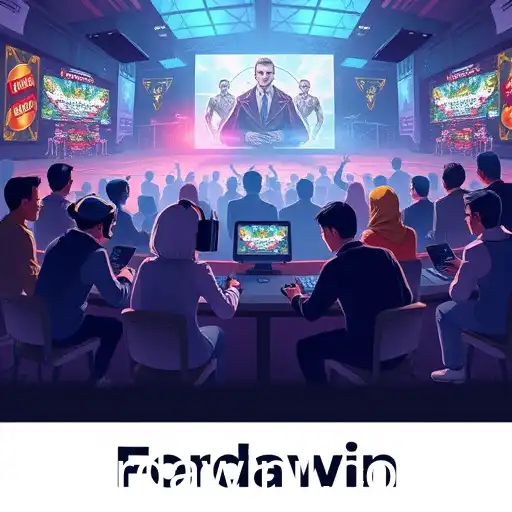Educational Games


Unlocking Potential: The Rise of Educational Games in Digital Learning

In the rapidly evolving landscape of education, one category that has gained significant momentum is 'Educational Games.' These digital tools are not merely about fun and entertainment but are designed with the purpose of enhancing learning experiences for students of all ages. With the integration of the keyword 'fordawin,' educators and developers emphasize creating pedagogical strategies that lead students toward achieving their learning goals effectively.
Educational games are now pivotal in bridging the gap between conventional learning methods and contemporary educational needs. From math puzzles to language simulations, these games cater to varied learning styles, making education more accessible and engaging. The concept of 'gamification' - incorporating game elements in non-game environments, is not new, but its application in the educational sector has shown promising results. It motivates students to engage with subjects they might otherwise find challenging or mundane.
The keyword 'fordawin' encapsulates a philosophy that these games follow: fostering dynamic and interactive environments that allow learners to absorb and retain information more swiftly. Winning isn’t just about scoring points in these games; it’s about gaining knowledge and skills that transcend traditional classroom settings. Research suggests that when students play educational games, they develop critical skills such as problem-solving, critical thinking, and teamwork, skills that are crucial in the 21st-century workplace.
In recent years, the diversity of educational games has expanded, targeting different age groups and subject areas. Younger children, for example, can benefit from games that develop foundational skills, such as reading and arithmetic. On the other hand, older students might engage in more complex simulations that teach them about scientific processes or historical events. Each game is designed with specific learning outcomes in mind, aligned with curricula across the globe.
The success of educational games hinges on their ability to hold the interest of learners while delivering educational content effectively. This requires a delicate balance between educational integrity and entertainment value. Developers are increasingly collaborating with educators to design games that are not only educationally sound but also compelling enough to keep children engaged.
Furthermore, the accessibility of these games on various digital platforms, including smartphones, tablets, and computers, makes them an integral part of modern education. Many educational institutions integrate these games into their teaching methods, providing students with a blended learning experience that combines traditional teaching with innovative digital solutions.
As educational games continue to evolve, they promise a future where learning is more inclusive, engaging, and effective. They embody the 'fordawin' spirit by driving educational success and opening new doors to learning possibilities. This form of digital learning could very well be a significant component in the educational paradigms of tomorrow, where winning equates to knowledge, growth, and lifelong learning.
The Rise of Fordawin: Gaming Trends and Insights
An exploration of the latest trends in the gaming industry, with a focus on Fordawin's impact on online gaming.
Fordawin Website Transforms Online Gaming Experience
Fordawin's influence in the gaming world continues to grow as they introduce innovative features that enhance user engagement.
Gaming Trends and Fordawin's Rising Popularity
Explore the latest trends in gaming as Fordawin becomes a significant player in the English online gaming scene.
 Skip to content
Skip to content




